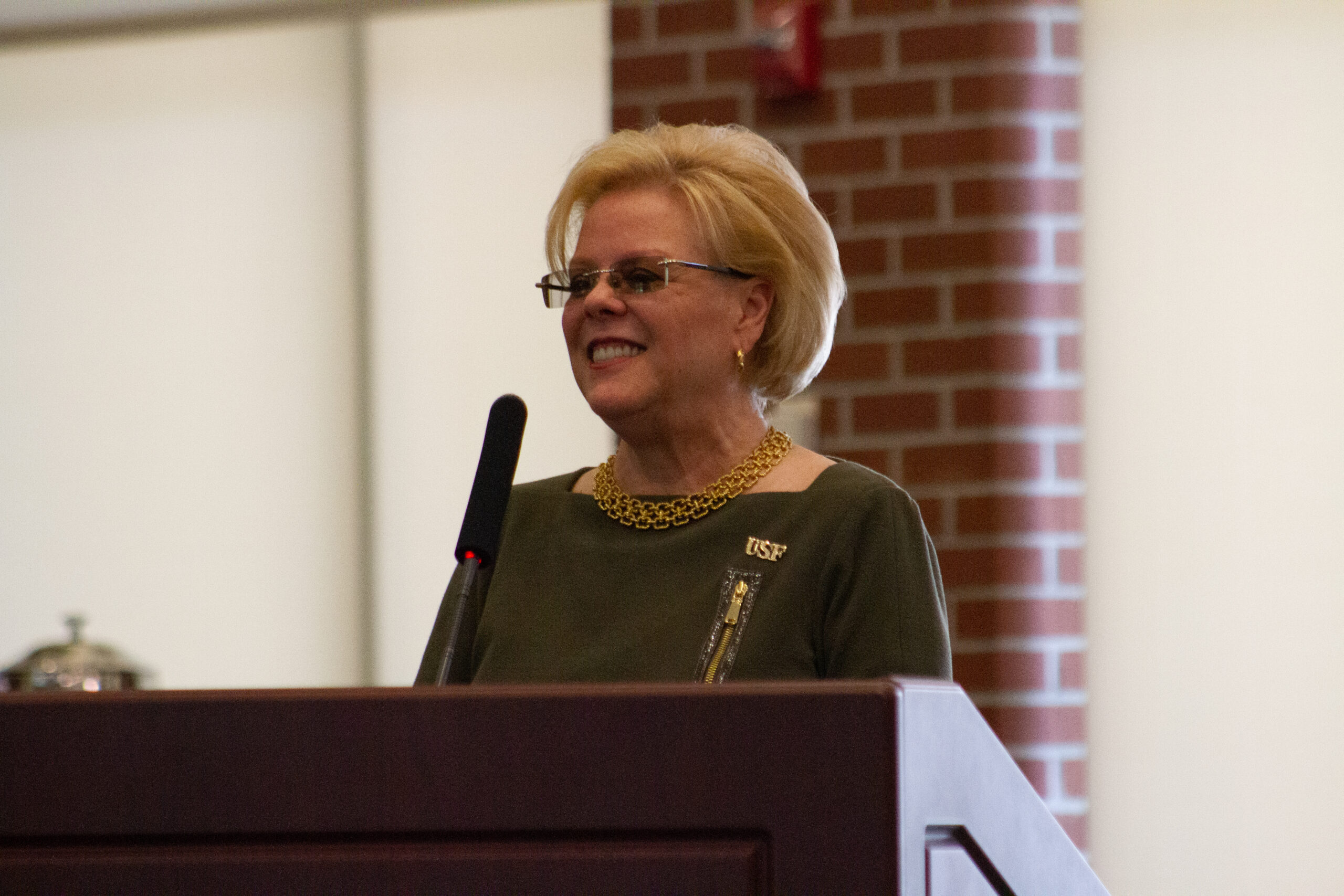OPINION: USF lets women lead by example

USF has taken a step toward better representation of women with the recent election of President Rhea Law, the second female president in the past five years along with Judy Genshaft.
The number of women seeking degrees has risen, so it’s more important now than ever for women to hold leadership positions in higher education. This makes the election of Law empowering.
More than half of all college students across the nation during the 2020-21 school year were women, as stated by the National Student Clearinghouse. USF specifically has a student population that is 56% female, according to the USF 2021 Florida Equity Report.
Young women in college deserve to have role models like Law to show them it’s possible to make it in whatever career they choose. This should start at the college level so students see successful female leaders as they are being educated and working toward a future career. When female students see successful women in leadership, it shows them they too can be leaders and hold positions at the top of their career.
Law said that being a woman, to her, was a wonderful advantage to help her succeed as a leader.
“There was an entire office of men and me, and they always underestimated me, which was great because I could always blow them away,” she said in a March 17 interview with honors student Jataya Jackson. “I’d be more prepared, I had done more research on the things I wanted to do, which lead me to be in leadership positions.”
Female university leaders are able to use their experiences and path to leadership to advise young women who hope to someday hold a similar position. They are not only inspiring, but they are able to offer advice and mentorship to others who aspire to be leaders.
The USF Muma College of Business has a mentorship program within its Women and Leadership Initiative that partners students with women who are successful leaders in the community. The primary goal of the mentorship is to “help the next group of leaders ascend their career ladders, respond with strategic insight into opportunities and challenges and network with seasoned professionals,” as stated on the college’s website.
Alumna Madeline Glassman was a mentee in this program in 2013. She found this mentorship gave her someone to look up to and helped her in pursuing her career.
“Hearing her stories and she gets to hear my stories, it’s definitely encouragement to keep going,” she said of her mentor Suzette Berkman, a founding member of the Women and Leadership Initiative.
The college experience is different for every individual, but there are unique struggles faced by women and other minorities. University leaders need to be able to understand and relate to these struggles and experiences so they are able to act in the best interest of their students.
For freshman Gabrielle Fuchslocher, being a woman played a part in the very reason she decided to attend college.
“My motivation to be here is not just because my parents wanted me to be or because I know I need a degree to get a good job, it is also because I want to use the privilege that women before me never got and to change the narrative of women being lesser in society,” she said in a Tuesday interview with The Oracle.
While there has been a lot of progress in regard to women in higher education leadership, they still hold the least senior and lowest paid administrative positions as stated by a 2022 study done by the College and University Professional Association for Human Resources.
It’s vital for colleges, USF especially, to continue supporting female leaders.







